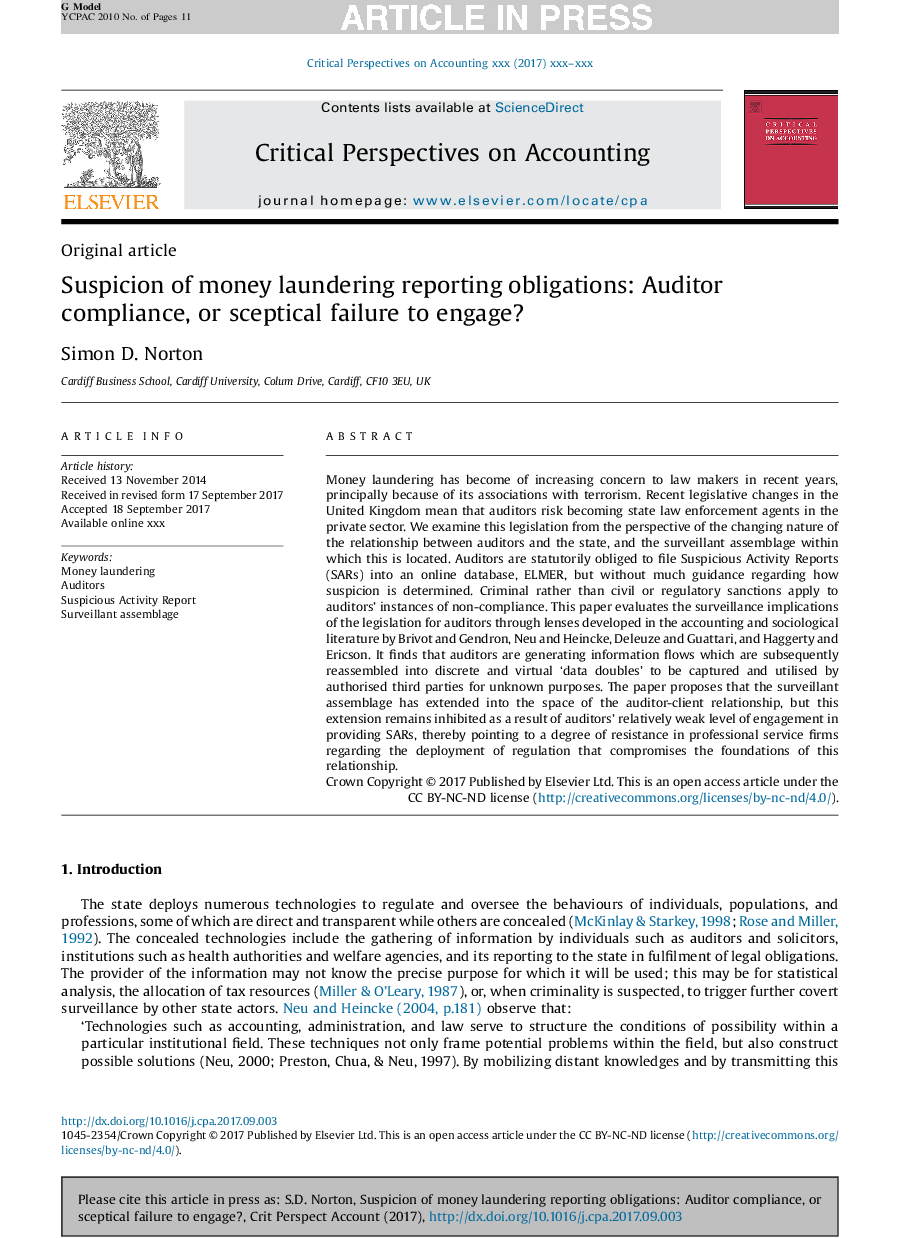| Article ID | Journal | Published Year | Pages | File Type |
|---|---|---|---|---|
| 7412102 | Critical Perspectives on Accounting | 2018 | 11 Pages |
Abstract
Money laundering has become of increasing concern to law makers in recent years, principally because of its associations with terrorism. Recent legislative changes in the United Kingdom mean that auditors risk becoming state law enforcement agents in the private sector. We examine this legislation from the perspective of the changing nature of the relationship between auditors and the state, and the surveillant assemblage within which this is located. Auditors are statutorily obliged to file Suspicious Activity Reports (SARs) into an online database, ELMER, but without much guidance regarding how suspicion is determined. Criminal rather than civil or regulatory sanctions apply to auditors' instances of non-compliance. This paper evaluates the surveillance implications of the legislation for auditors through lenses developed in the accounting and sociological literature by Brivot and Gendron, Neu and Heincke, Deleuze and Guattari, and Haggerty and Ericson. It finds that auditors are generating information flows which are subsequently reassembled into discrete and virtual 'data doubles' to be captured and utilised by authorised third parties for unknown purposes. The paper proposes that the surveillant assemblage has extended into the space of the auditor-client relationship, but this extension remains inhibited as a result of auditors' relatively weak level of engagement in providing SARs, thereby pointing to a degree of resistance in professional service firms regarding the deployment of regulation that compromises the foundations of this relationship.
Keywords
Related Topics
Social Sciences and Humanities
Business, Management and Accounting
Accounting
Authors
Simon D. Norton,
